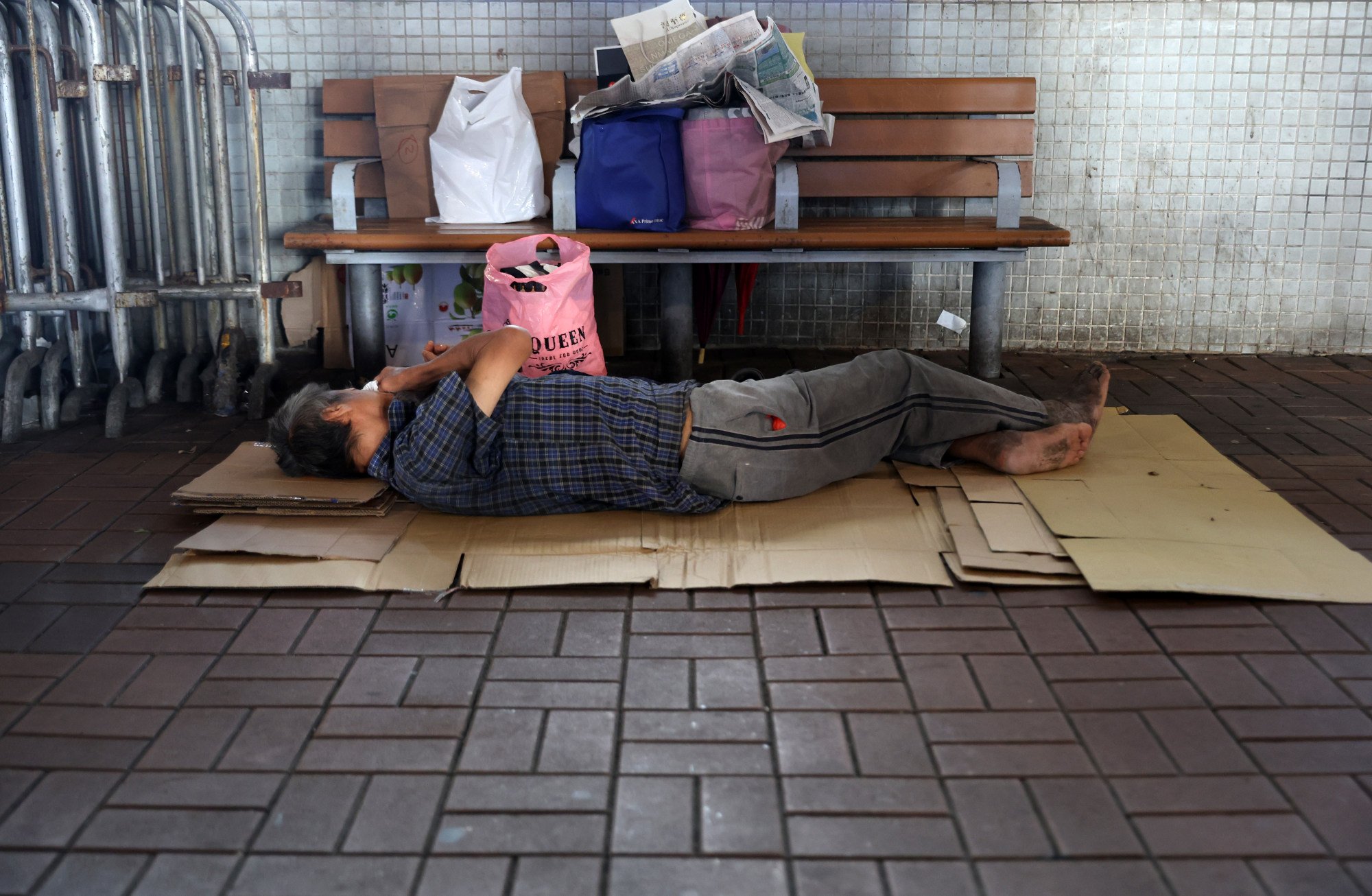
Hong Kong needs more incentives to keep older residents in the workforce to tackle growing poverty among the elderly, experts have said, pointing to the experiences of Singapore and Japan where grants and laws are in place to encourage employers to keep seniors working beyond retirement age.
They said policies to incentivise businesses to employ elderly staff and encourage older residents to continue working were crucial for an ageing society such as Hong Kong.
The calls were made after a report released by the local branch of an international charity on Wednesday put the spotlight on the city’s widening wealth inequality with a highlight on impoverished elderly.
Do you have questions about the biggest topics and trends from around the world? Get the answers with SCMP Knowledge, our new platform of curated content with explainers, FAQs, analyses and infographics brought to you by our award-winning team.
“Hong Kong is facing worsening population ageing with a labour shortage and a low labour force participation rate,” labour sector lawmaker Chau Siu-chung said.
“We urge the government to step up support and encourage employment among the elderly to tackle the greying population and help lift older residents out of poverty.”
Oxfam Hong Kong revealed that more than 1.39 million people were living in poverty in the first quarter of this year, a rate of 20.2 per cent, up from 19.5 per cent last year and 18.3 per cent in 2019.
A highlight of the charity’s latest report was the worsening circumstances among older residents, with more than 580,000 people aged 65 and above living under the poverty line, up by 42.9 per cent from 2019.
In Hong Kong, there is no statutory retirement age, but most companies require staff to stop working between 60 and 65 years of age.
The labour force participation rate among the elderly stood at 13.9 per cent during the first quarter of this year, while the rate for the city’s impoverished older residents stood at just 3.8 per cent, according to the charity’s figures.
The rate stood at 25.6 per cent in Japan, 15.01 per cent in Australia, 19.23 per cent in the United States and 13.65 per cent in Norway in 2022, according to statistics from the World Health Organization.
Chau, from the Federation of Hong Kong and Kowloon Labour Unions, asked authorities to come up with measures to help incentivise employers to hire older residents and also encourage older residents to return to work given the limited existing support schemes.
The Employment Programme for the Elderly and Middle-aged encourages bosses to engage unemployed jobseekers aged 40 or above.
The scheme provides jobseekers with on-the-job training through the provision of a training allowance to employers of up to HK$5,000 (US$643) per month per staff member for six to 12 months.
Chau suggested employers be offered tax concessions to recruit elderly workers while older residents should be given rewards such as allowances to return to the workforce.
He urged authorities to refer to the multipronged approaches adopted in other ageing societies such as Singapore and Japan.
Their measures include earned income tax credit and delayed pension payment, as well as anti-age discrimination laws and subsidies or wage offsets for employers.
In Singapore, the labour force participation rate among people aged 65 and above stood at 31.5 per cent last year.
The Singaporean government offers the Senior Worker Early Adopter Grant, which provides funding support for companies to raise their internal retirement and re-employment ages above minimum statutory requirements. The Part-time Re-employment Grant is offered to firms that provide part-time re-employment to workers aged 60 or above.
Its Special Employment Credit provides employers with wage offsets when hiring workers aged 60 or above who earn up to S$4,000 (US$3,100) a month.
The city state’s Retirement and Re-employment Act requires companies to rehire eligible workers after they reach the statutory minimum retirement age of 63 until 68.

Kelvin Tan, head of an applied ageing studies programme at the Singapore University of Social Sciences, said authorities had also continuously encouraged residents to improve their skills by offering vocational and professional courses and training to help them stay employable at any age.
He noted that the country’s retirement age would be increased by a year to 64 in 2026, while the government would support employers to hire those over the retirement age as long as they were healthy and capable.
“Incentivising companies to hold back their older workers by rewarding them through such kinds of employment credit and helping them to defray the cost to the business is something that Hong Kong could learn because Hong Kong is also suffering from a slowdown in economy,” he said.
Terry Leung Ming-fung, research and advocacy manager of Oxfam Hong Kong, urged the city to learn from places such as Japan to create a better working environment to suit older workers’ health conditions and offer them flexible job times and arrangements.
In Japan, the government offers grants to employers to partially cover expenses for providing an age-friendly work environment.
A network of Silver Human Resource Centres has also been established across Japan to provide community-based temporary and short-term job opportunities for people generally aged 60 or above.
“Assisting impoverished elderly to return to work was key in helping them improve their circumstances and lift them out of poverty,” Leung said.
More from South China Morning Post:
- Hong Kong’s richest earning 81.9 times more than poorest residents, charity says
- Hong Kong’s elderly ‘No 1 priority’ as welfare chief reveals new measures being studied amid string of tragedies
For the latest news from the South China Morning Post download our mobile app. Copyright 2024.









































